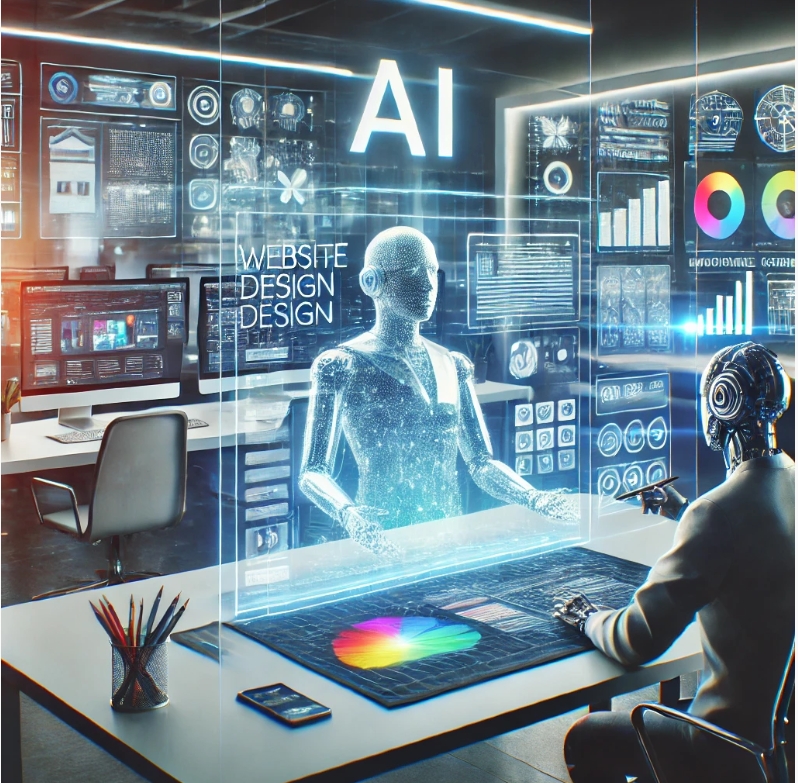As artificial intelligence (AI) continues to advance at a rapid pace, its influence on various industries is becoming increasingly apparent. One such area where AI is making a significant impact is website design. The integration of AI technologies is transforming the way websites are created, optimized, and maintained, leading to a new era of digital experiences.
AI-Powered Design Tools Revolutionize Web Development
AI-powered design tools are revolutionizing the web development process by automating tasks that were once time-consuming and labor-intensive. These tools can generate layouts, suggest design elements, and even create entire websites based on minimal input from the user. This automation allows designers to focus on more creative aspects of the design process, while AI handles the repetitive and technical tasks.
For instance, AI-driven platforms like Wix ADI (Artificial Design Intelligence) and Bookmark’s AiDA (Artificial Intelligence Design Assistant) enable users to create personalized websites within minutes. By analyzing user preferences and industry trends, these tools can generate unique designs that align with a brand's identity, all while ensuring a seamless user experience.
Enhancing User Experience Through Personalization
One of the most significant impacts of AI on website design is the ability to create highly personalized user experiences. AI algorithms can analyze vast amounts of data, including user behavior, preferences, and demographics, to deliver tailored content and recommendations. This level of personalization enhances user engagement, leading to higher conversion rates and customer satisfaction.
E-commerce websites, for example, are leveraging AI to provide personalized product recommendations based on a user’s browsing history and purchase behavior. This not only improves the shopping experience but also increases the likelihood of repeat visits and sales.
Optimizing Website Performance with AI Analytics
AI is also playing a crucial role in optimizing website performance through advanced analytics. AI-powered tools can monitor website traffic, analyze user interactions, and identify areas for improvement in real time. This data-driven approach allows businesses to make informed decisions about their website’s design and functionality, ensuring that it meets the needs of their target audience.
Moreover, AI can predict future trends and user behaviors, enabling businesses to stay ahead of the competition by proactively updating their websites to reflect these insights. This predictive capability is particularly valuable in dynamic industries where staying relevant is key to success.
Improving Accessibility and Inclusivity
AI is also helping to make websites more accessible and inclusive. AI-driven tools can automatically generate alt text for images, transcribe videos, and suggest adjustments to improve the readability of content for users with disabilities. This ensures that websites are compliant with accessibility standards and can be easily navigated by all users, regardless of their abilities.
Looking Ahead: The Future of AI in Website Design
As AI technology continues to evolve, its impact on website design will only grow stronger. Future advancements may include AI systems that can design websites entirely autonomously, further reducing the need for human intervention. However, the role of human creativity will remain crucial, as AI will serve as a powerful tool to enhance and complement the design process.
In conclusion, AI is reshaping the landscape of website design, offering new opportunities for innovation, efficiency, and personalization. Businesses that embrace these AI-driven advancements will be better positioned to deliver exceptional digital experiences to their customers, setting themselves apart in an increasingly competitive online marketplace.
